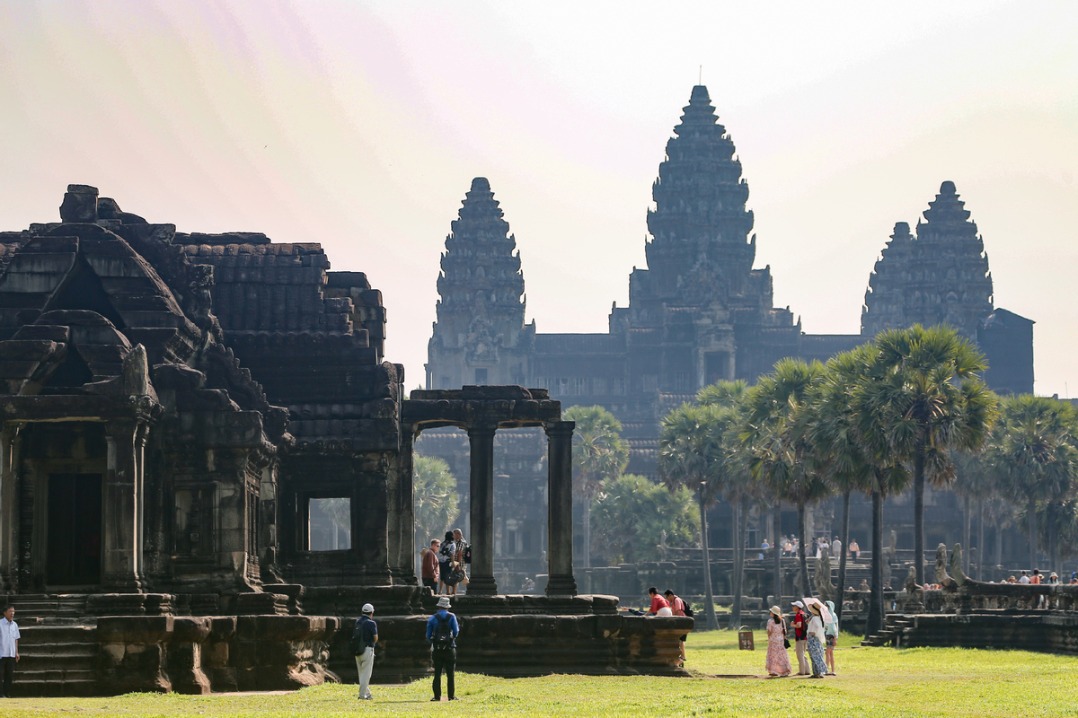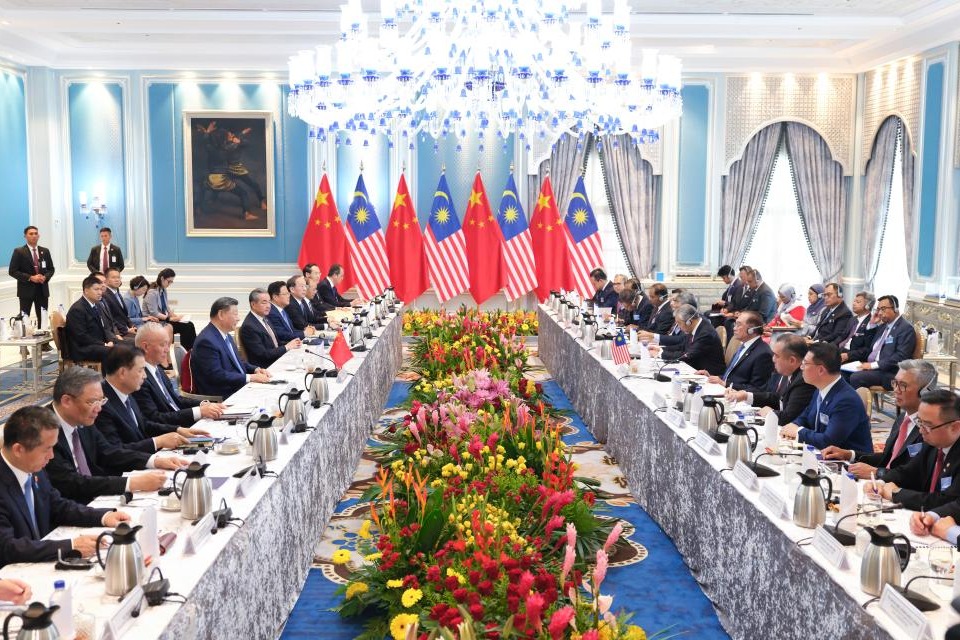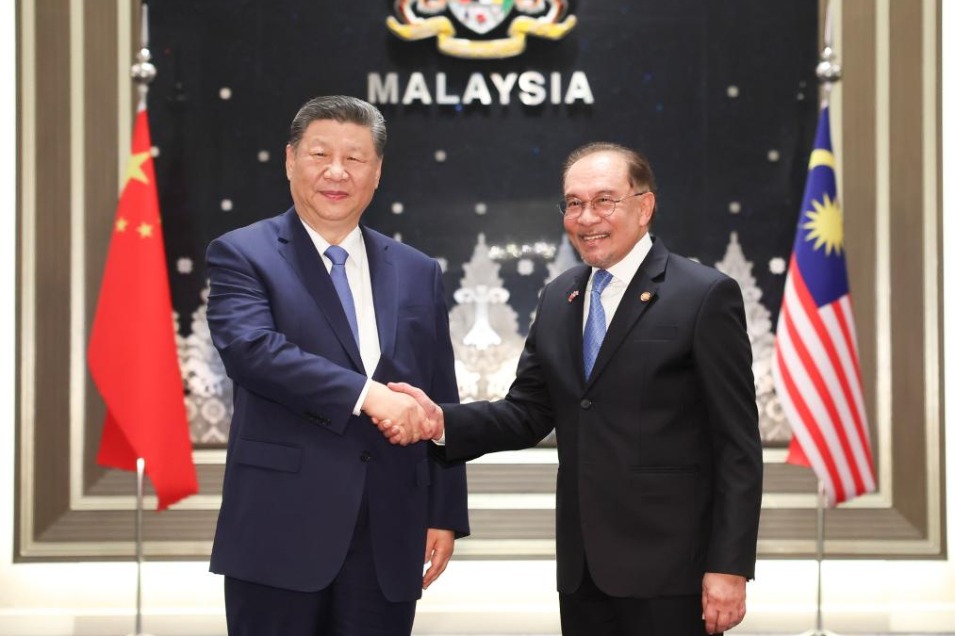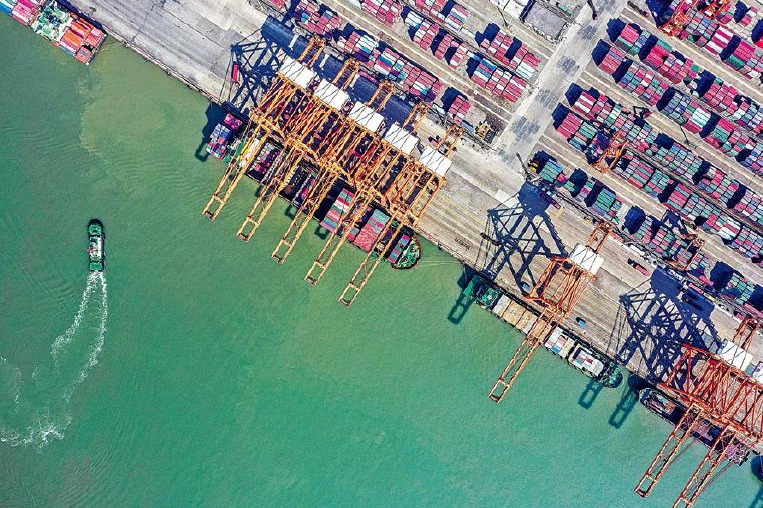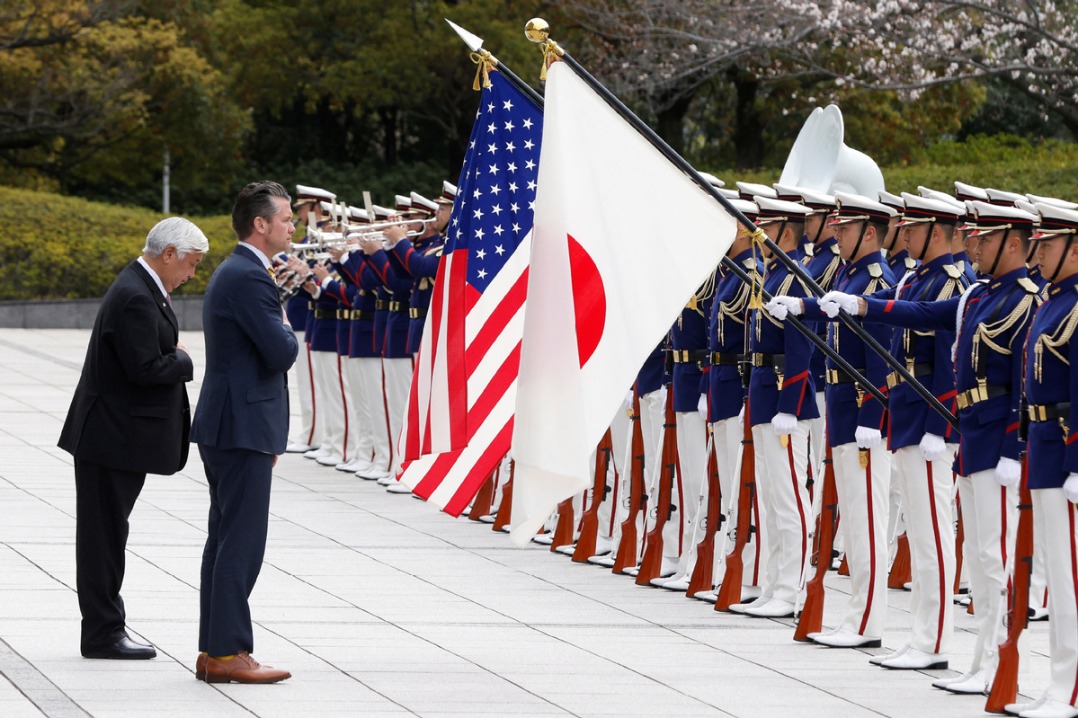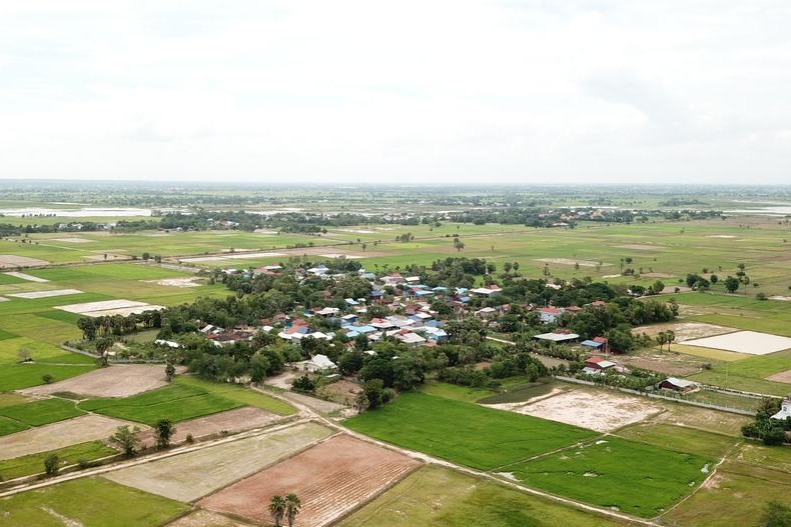ROK's pro-Japan diplomacy will backfire


Japanese Prime Minister Fumio Kishida is paying a visit to the Republic of Korea on Friday and Saturday as the relationship between the two formerly hostile neighboring countries has noticeably warmed after ROK President Yoon Suk-yeol changed the country's policy toward Japan.
Since Yoon was elected as the president, the ROK's foreign policy has increasingly mirrored Japan's. The resemblance became even more obvious when Yoon delivered a speech on the ROK's National Liberation Day on Aug 15. Yoon's comments, and some of the presidential office's statements on historical issues involving Japan, make it difficult to tell whether it's the ROK or the Japanese government speaking. As Koreans often say, "a trusted axe can wound one's own foot".
However, the "Japanization" of the ROK's diplomacy under Yoon is bound to backfire. After assuming office in May 2022, Yoon made sweeping changes to the ROK's foreign policy and national security strategy. For example, the ROK has been helping advance the United States-Japan-driven "Indo-Pacific strategy", and has strengthened military cooperation with both countries. Also, Yoon has adopted a more conservative ideological stance toward the Democratic People's Republic of Korea and China, resulting in frosty inter-Korean and China-ROK relations, often accompanied by tensions.
The change in the ROK's attitude toward Japan is even starker. The Yoon administration has stopped taking actions and issuing statements that Japan might find provocative, such as holding military exercises near the disputed Dokdo (Takeshima) Islands or demanding that Japan apologize for historical issues.
Also, despite being Japan's closest neighbor, the ROK chose to not oppose Japan's releasing of nuclear wastewater from the Fukushima Daiichi nuclear power plant and, instead, supported Japan's claim that it was releasing "treated water" into the sea, while dismissing critics at home saying they were engaging in anti-Japan propaganda.
Interestingly, the ROK also uses Japanese perspectives in its diplomacy. In January 2023, for instance, Yoon said he can't oppose Japan's growing defense spending and inclusion of "counterstrike" mechanisms in its security needs, because "the DPRK's missiles" are flying all over Japan.
The Yoon administration has also abandoned the demand that Japan apologize for committing atrocities against the Korean people and pay compensation to the survivors of forced labor during the colonial period. Instead, it has paid compensation to the survivors from the ROK's coffers. The ROK also supported Japan's bid to have the Sado Kinzan Gold Mine listed as a UNESCO World Heritage site despite Japan's refusal to acknowledge the use of forced labor there.
ROK leaders used to use the National Liberation Day to remind ROK citizens of the spirit of the independence movement and to urge Japan to reflect on its past, and pursue peace. However, Yoon's speech this year made no mention of Japan's colonial aggression, even though Korea gained independence after more than 30 years of Japanese colonial rule 79 years ago. He chose, instead, to focus on freedom and Korea's reunification, surprising even the Japanese media.
Adding insult to injury, in response to domestic criticism, Kim Tae-hyo, the ROK's principal deputy national security adviser, argued that forcing an insincere Japan to apologize would not help ROK-Japan cooperation. The backlash against Kim's remarks forced the presidential office to explain that Japan had apologized numerous times for its militarist past and was "tired" of repeatedly doing so. Both Kim's comments and the office's explanation are similar to Japan's stance, and do not reflect the public sentiment in the ROK, which further infuriated domestic critics.
Yoon's blind pursuit of a Japan-like foreign policy is unlikely to prompt Japan to sincerely reflect on its militarist past and engage in peaceful diplomacy. Rather it is likely to embolden Japan's right-leaning politicians — for example, those who recently visited the Yasukuni Shrine which honors, among others, 14 class-A war criminals — to make more efforts to abandon its postwar pacifism.
But Yoon should know that the "Japanization" of the country's foreign policy will harm not just the ROK, but also other Asian countries.
The author is a professor at the Center for Korean Peninsula Studies, Shanghai University of International Business and Economics.
The views don't necessarily reflect those of China Daily.
If you have a specific expertise, or would like to share your thought about our stories, then send us your writings at [email protected], and [email protected].

















